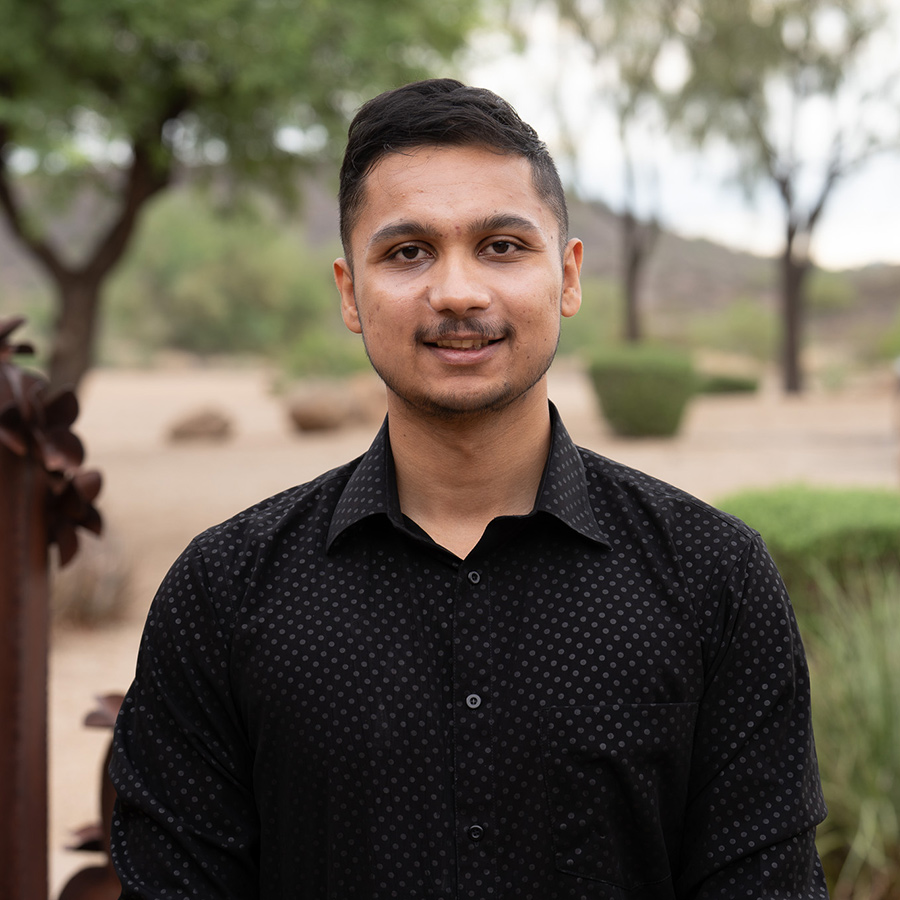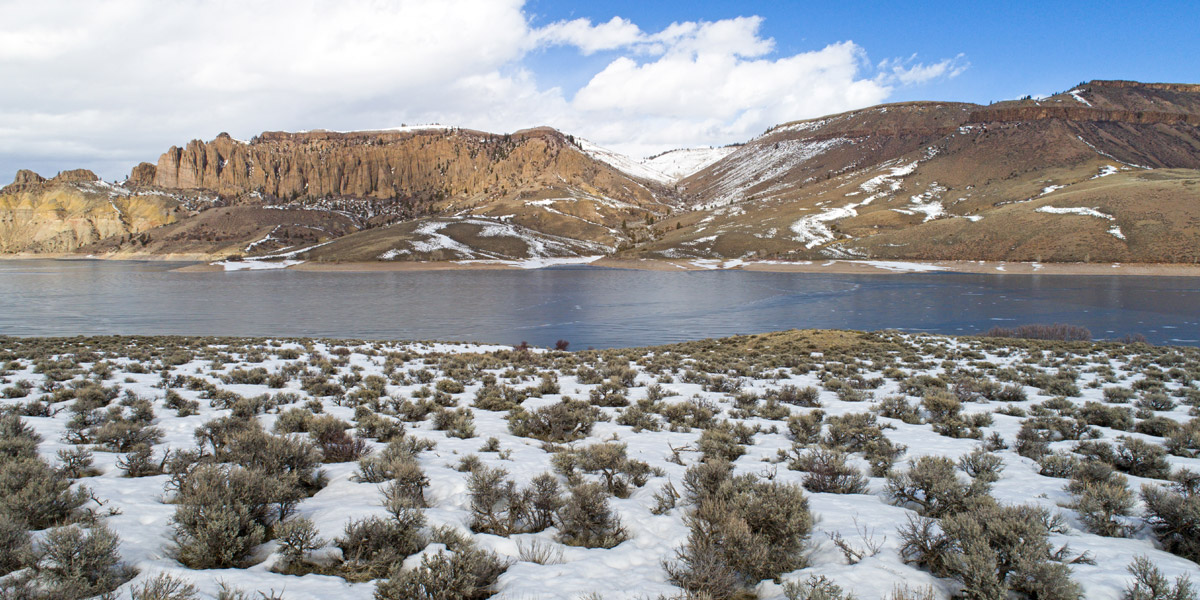For more than two decades, Central Arizona Project has been offering our annual CAP Award for Water Research, recognizing excellence in graduate and undergraduate water research.
Here, we’ll check out the research produced by first-place winner, Swastik Ghimire.
First place: Relative Roles of Fall Soil Moisture and Spring Weather on the Relationship between Snow and Streamflow in the Colorado River Basin
Abstract by Ghimire
The Colorado River Basin (CRB) has experienced prolonged drought since 2000, with recent years showing a weakened relationship between snowpack and streamflow. This research investigates why near-average snowpack often fails to produce expected streamflow volumes by examining the roles of fall soil moisture and spring weather.
Using the Variable Infiltration Capacity (VIC) model, controlled numerical experiments were conducted to isolate the effects of October soil moisture conditions and April-May-June climate anomalies while maintaining consistent snowpack.
Results indicate that antecedent soil moisture accounts for approximately 74% of streamflow variability in the Upper Colorado River Basin (UCRB), while spring precipitation contributes about 24%. Under a constant snowpack condition, initial soil moisture alone can cause a difference of 8.45 km³ in annual streamflow, with deep soil layers particularly influential. Similarly, spring weather variations under similar winter and near-peak snowpack alone produce a variation of 8.31 km³ in annual streamflow in the UCRB.
This research explains the “missing snowmelt” phenomenon, where water from snowmelt, especially in average snowpack years like 2020 and 2021, replenishes soil moisture deficits or is lost to evapotranspiration rather than contributing to streamflow.
These findings highlight the need for water management strategies that incorporate soil moisture monitoring and spring climate forecasts, potentially improving water supply predictions during drought conditions.
About the Student

Swastik Ghimire is a civil engineer with a strong academic and research foundation in water resources and environmental engineering. During his Master’s studies at Arizona State University, he specialized in Hydrosystems Engineering and worked as a Graduate Research Assistant in Dr. Enrique Vivoni’s team, focusing on drought dynamics in the Colorado River Basin and contributing to a deeper understanding of hydrological variability in the region. He earned his undergraduate degree in Civil Engineering from Tribhuvan University, IOE Pulchowk Campus in Nepal. Currently, he works as a Civil Engineer at Bowman in Glendale, Ariz., where he applies his academic and research experience to sustainable infrastructure development.
About the CAP Award for Water Research
The CAP Award for Water Research is intended to encourage and support water research by students in Arizona colleges and universities and to raise public awareness of water issues impacting central and southern Arizona and the Colorado River. Judging is conducted in a blind process by representatives of CAP’s popularly elected Board of Directors, CAP stakeholders and management, and other members of the water community. The first-place winner received $3,500 and second-place winner received $2,000. The research could drop a dent into the world of Arizona’s water supply research in the future.


